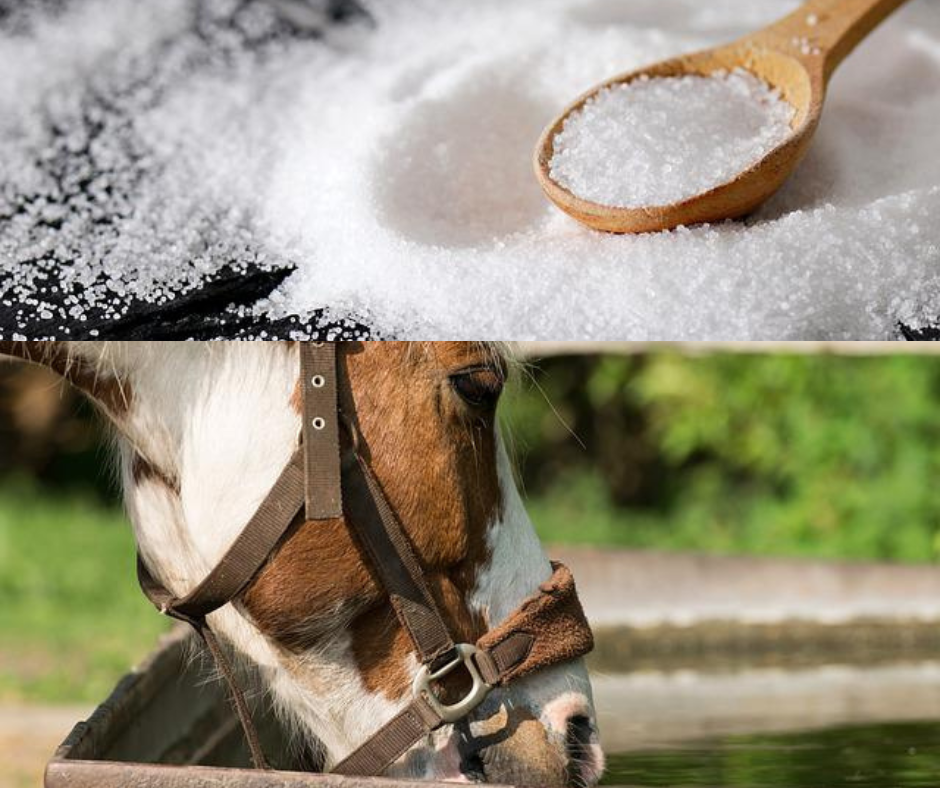
Salt is a common additive to horse feed and water, but does it have any benefits?
The benefits of salt for horses
- Maintain good health
- Improves performance
- Protect your horse from the heat
- Protects from dehydration
- The sodium in salt is important in regulating blood pressure and maintaining normal blood volume
- Reduces the risk of heat stroke when exercising
How much salt should a horse have?
The average horse (weighs about 450kg) has a basic salt (sodium chloride) requirement of approximately 1 oz/day.
They may also need 1 ounce of plain salt daily in cool weather, up to 3 or 4 when sweating.
The best way to determine how much salt your horse needs is to talk to your veterinarian or equine nutritionist.
Which is better: loose, coarse salt or salt block?
Horses prefer loose, coarse salt. Horses can and do lick salt blocks but may not be enough especially if they are sweating a lot due to exercise or work.
When should a horse get salt?
Horses need salt daily but the amount will depend on their level of activity. Their sodium requirement may increase when sweating. In fact, according to Dr. Kellon, when sweating heavily for an hour, the sodium requirement goes up 500%.
It does no good to give extra salt/electrolytes several hours before work because they will end up in the urine. When exercising your horse, you can give the first hour’s dose within 30 minutes of starting exercise and the rest during or after exercise.
How can you tell if a horse needs more salt?
- Sweating a lot, or working hard
- Signs of dehydration
- Reduced performance
- Muscle cramping
Conclusion:
Salt is an essential mineral for horses. It helps regulate the amount of water in their body, maintain normal blood pressure, and keep their muscles and nerves functioning properly. Horses that don’t get enough salt may develop dehydration, muscle cramps, or nerve problems.
Reference:
https://drkhorsesense.wordpress.com/tag/salt/
Image by Marek from Pixabay
Image by Rebecca Scholz from Pixabay